Sources like Medical News Today boldly state:
“There is currently no large-scale, conclusive evidence to support the idea that pornography use causes depression or that people with depression are more likely to develop an addiction to pornography.”
However, researchers who study the long-term effects of internet porn on society keep calling for large scale studies – because these studies don’t actually exist yet despite nearly thirty years of easy access to online porn.
Table of Contents
- Why consider potential links between porn use and depression
- Recent depression statistics in the U.S.
- Smaller studies conclude that porn and depression are linked
- How porn use and depression can be linked indirectly
- Resources and encouragement to help overcome depression and porn use
- If someone you love struggles with porn and depression
- Conclusion
“On June 26, 1997, after more than a year of heated debate about the censoring of the internet, the United States Supreme Court struck down
the Communications Decency Act
for violating the First Amendment.” – Wired.com
After the Supreme Court ruling, Internet porn entrepreneurs secretly activated a mass invasion into the private lives of ordinary people.
As a result – for children and adults alike – free online porn is only one tap away on smartphones and other devices. Society is suffering many hidden consequences — and depression can’t be ruled out.
Why consider potential links between porn use and depression
So what if porn use and depression are indeed linked? A growing number of reputable smaller scale studies reveal legitimate ties between porn use and depression.
These studies provide vital information for anyone struggling with an unwanted porn habit. Investigating root causes of porn use gives you power to take steps towards positive changes.
Next, mental health challenges like depression genuinely hurt millions.
Depression steals hope and paralyzes people.
For many, depression is a silent dream killer.
What if you or someone you love could experience real relief?
What if your life could actually change for good by eliminating a porn habit that weighs you down more than you may realize?
Please note that we’re not saying all or even most depression stems from porn use. Many medical and personal life circumstances can contribute to depression.
However, in this article, we’ll examine expert research as well as anecdotal evidence from our customers’ lived experiences with overcoming porn and finding relief from depression.
Ridding yourself of porn has the potential to spark positive personal growth and better mental health.
Recent depression statistics in the US
Depression statistics from the 2021 National Survey on Drug Use and Health (NSDUH) show a rise in the number of young men and women who struggled with major depression.
“An estimated 21.0 million adults in the United States had at least one major depressive episode. This number represented 8.3% of all U.S. adults.”
A 2023 Gallup survey agrees, stating that depression rates “are the highest recorded by Gallup since it began measuring depression using the current form of data collection in 2015.”
Smaller studies conclude that porn and depression are linked
A 2023 medical journal article published by the National Institutes of Health discusses whether porn and depression are linked.
“In summary, these findings show that stress, anxiety, and depression are strongly related to pornography consumption and conflicting emotional experiences as well as identity problems significantly enhance vulnerability to addictive sexual behavior–related pornographic experiences.” – Pornography Consumption and Cognitive-Affective Distress – PMC

In conclusion, this NIH article warns the public that pornography and depression may have dire future consequences for public health, including “increased suicidal tendencies”.
“We can expect severe consequences of the Internet pornography exposure and addiction at approximately from 10 to 30 years from now, when generations mostly affected by pornography consumption will experience body image dissatisfaction at their middle age or later, which may influence future epidemic of mental disorders mainly depression and anxiety,
and increased suicidal tendencies in population.”
Porn use and depression linked in college age students
Recently a 2019 study published by the National Institutes of Health in 2021 notes survey results of a little more than a thousand college students at Franciscan University of Steubenville, a private Catholic college.
This anonymous survey included the 21-question version of the Depression, Anxiety and Stress Scale (DASS-21). Based on the results:
“Our analyses indicate a significant relationship between mental health and pornography use, including behaviors reflecting behavioral addictions, highlighting the necessity for a better understanding and consideration of the potential contribution of internet pornography to negative mental health among university students.”
Another research study released in 2023 surveying Rhode Island college students about pornography also concludes:
“Pornography use and addiction are prevalent in Rhode Island’s young adult population, particularly young men, and pornography addiction may be associated with depression and suicide ideation. Targeted screening programs should be considered.”
A moral connection between porn use and depression
Guilt and shame from breaking your moral or religious standards can directly trigger depression over personal porn use.
“Results also suggest the connection between viewing pornography and depressive symptoms is bidirectional, contingent on men’s moral evaluation of its use. For male porn users who morally reject it, pornography use predicts depressive symptoms at low frequencies, likely stemming from cognitive stress or dissonance.” – Sage Journals, Society and Mental Health
Or – a reverse cause – depression leading to higher levels of porn use
“For those who do not morally reject porn, however, only viewing it at the highest frequencies is associated with higher levels of depressive symptoms, which suggests reverse causation—depressed men likely view higher levels of pornography as a coping aid, especially when they do not view it as immoral.” – Sage Journals, Society and Mental Health
Truthfully, both scenarios line up with what we regularly hear from customers over the span of more than a decade. Some customers tell us that their pornography use was linked to depression, suicidal ideations, and other mental health issues.
Our customer survey and first-hand stories also link porn use and depression
We regularly listen to our customers through ongoing private surveys and the stories they share.
Our customers are unique because they courageously embrace vulnerability through online accountability to fight their unwanted porn habit.
“Vulnerability is the highest measure of courage”. – Brene Brown
How porn affected Daniel:
“Porn really warped my brain
for 8 years!
A lot of my life in general was completely marked
by fear of people judging me.”
– Daniel
How porn affected Cole:
“I don’t know what it was or what triggered it,
but I wanted to change now.
I didn’t want to look at people differently anymore.
I didn’t want to spend hours in my room alone.
I didn’t want to take my own life,
just because I didn’t know how to fix myself.”
How porn affected Eric:
“I realized there’s still some junk behind this behavior. For me, there was emotional dysfunction
and some intrusive thoughts that just wouldn’t go away.”
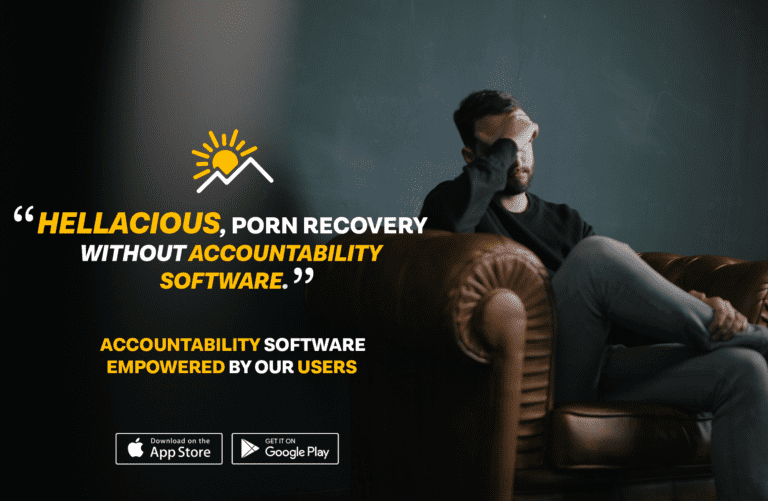
How porn affected Brad:
“But then something would trigger my stress and anxiety…and I would…be down the rabbit hole of porn addiction. I’d go back through this cycle of acting out, shame, embarrassment, and more hiding.”
Online communities call out the mental health effects of porn use
In addition, there are large “NoFap” communities on Reddit devoted to ridding themselves of pornography. Some in these communities believe their depression is linked to porn use.
What are some common ways porn use and depression are linked?
How porn use and depression can be linked indirectly
1. By creating an environment that leads to depression
Therapy sites such as BetterHelp note: “It is generally believed that porn and depression can be linked, for some. However, it’s worth noting that even if porn use may not directly cause depression, it can create an environment where symptoms of depression may arise.” –
Secrecy and isolation are two key features of porn use and masturbation. Clearly, isolation can quickly lead to feelings of loneliness.
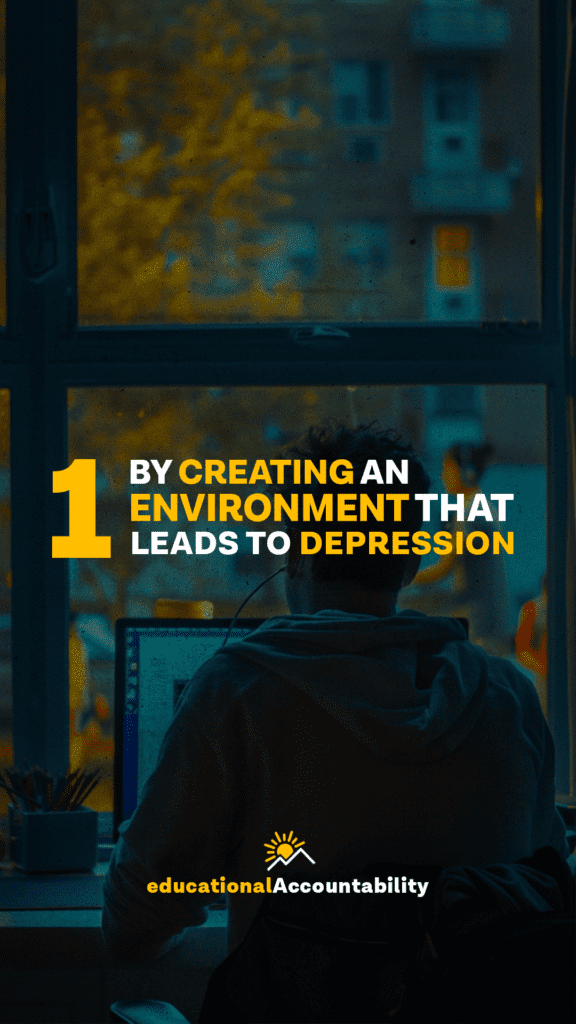
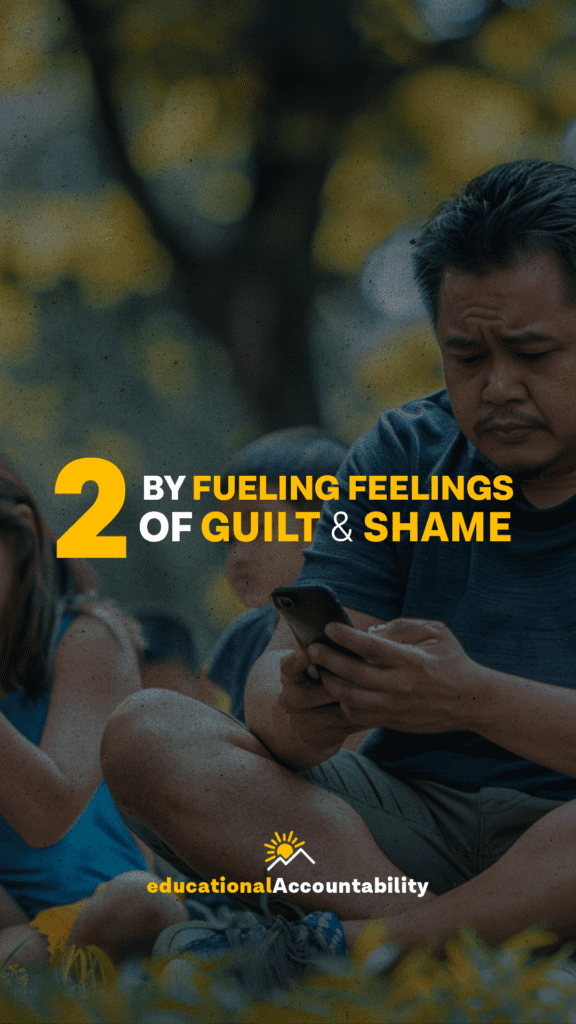
2. By fueling feelings of guilt and shame
Verywell Mind says porn use is tied to “indirect influences on depression caused by feelings such as guilt and shame, as well as relationship problems and loneliness that can arise from viewing sexual content or porn addiction.”
3. By feeding unhealthy relationship patterns: insecure attachment style, online incel communities, and potential compulsive sexual disorders
Insecure attachment style, porn use, and depression
When your life story includes trauma from your childhood caregivers, an insecure attachment style often develops. Mental health expert Anna Drescher describe insecure attachment styles:
“Insecure attachment typically develops in children who grew up with caregivers who were not responsive to their emotional needs. Insecure attachment is divided into three subtypes: avoidant (or dismissive-avoidant), anxious (or preoccupied), and disorganized (or fearful-avoidant).
While there are distinctions between the three types of insecure attachment styles, insecurely attached individuals all tend to struggle with trust, intimacy, and communication.” – Simply Psychology
Many have described porn use as a way to medicate depression and escape from emotional pain, or as a way of feeling “in control”.
“When the relationships and behaviors depicted in pornography are not realized in real-world dating environments, men may be more likely to experience insecure attachments, fear of being single, loneliness, and depressive symptoms.” – Pornography: A Concealed Behavior with Serious Consequences
Unfortunately, for some, online communities have become a place to voice and fuel each other’s angry and hurt feelings in a toxic way instead of seeking healing from past traumas.
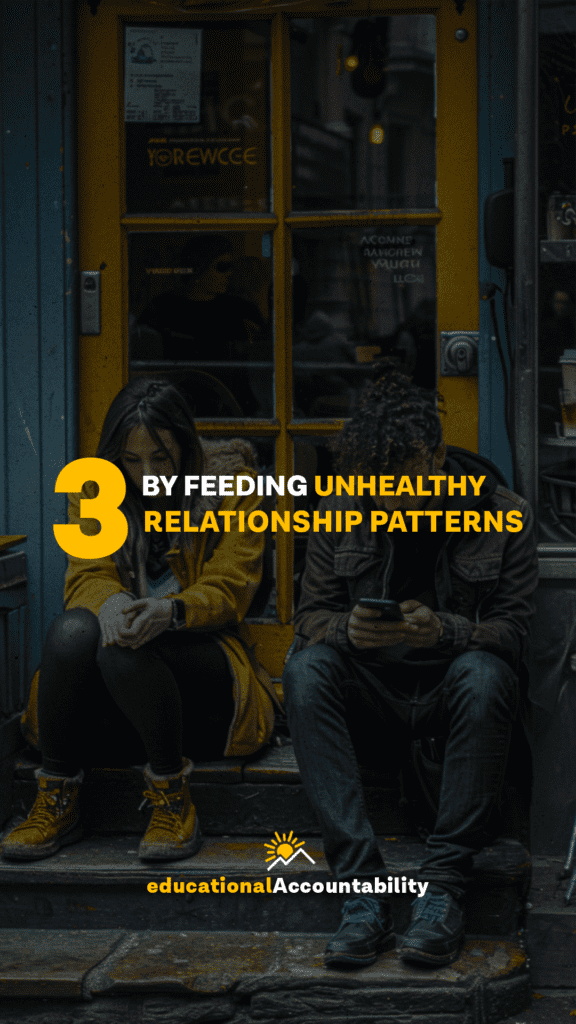
The rise of online incel communities
Depression is also linked to destructive relationship patterns between men and women – some of which is clearly fed by porn use. An article titled “Pornography in the Incelosphere” notes some of the destructive patterns:
“For example, millions of people have grown up viewing online porn, and large numbers of them now regard violent sex, in which women are humiliated and defiled, as normal (DeKeseredy et al., 2023; Foubert, 2022).”
Harvard psychology postdoc Miriam Lindner notes the rise of the incel – “involuntary celibate” men – as a fringe group with patterns of anger, depression, and justification for violence against women.
In addition, Adam Travers, PhD in a recent Forbes article says, “At the core of the incel community is a sense of inferiority and sexual and romantic insignificance, which manifests itself in the form of hatred toward women, who they believe are directly responsible for their issues.”

Walter S. DeKeseredy, professor of sociology at West Virginia University, also agrees that porn use and the rise of incels may be linked:
“What porn and incel culture definitely have in common is that both degrade women and present them as objects who deserve and enjoy sexual abuse.
As well, sex is presented in both discourses as a weapon to express hatred of women (Tranchese & Sugiura, 2021).”
Porn use and the potential for developing compulsive sexual behavior disorder.
After listing eight required symptoms for a diagnosis of compulsive sexual behavior disorder in the The International Classification of Diseases (ICD-11), the next section states:
“Compulsive Sexual Behaviour Disorder may be expressed in a variety of behaviours, including sexual behaviour with others, masturbation, use of pornography, cybersex (internet sex), telephone sex, and other forms of repetitive sexual behaviour.
Individuals with Compulsive Sexual Behaviour Disorder often engage in sexual behaviour in response to feelings of depression, anxiety, boredom, loneliness, or other negative affective states.”
Resources and encouragement to help overcome depression and porn use
Again, there is no one-size-fits-all solution for depression. Some, however, discover to their own surprise that quitting porn improves their whole outlook on life, empowering them to make other positive changes.
“Over the course of my fight, there were numerous positive side effects of quitting porn that I had not anticipated. I found a reason to live again.
With my better, stronger emotional and mental health, I now had the motivation to go to the gym regularly. My sleep schedule improved. I even had an increased determination to go back to school!” – Cole

7 tips to help with depression and porn use:
- Reach out to safe, encouraging people in your community of friends and family for positive accountability.
- You matter to us! Please call the National Suicide Prevention Lifeline: 1-800-273-8255 or text 988 immediately if you’re in a moment of crisis.
- Educate yourself on the process of quitting porn.
- Be kind to yourself on the journey.
- Check out our accountability app for a reliable tool to empower you to quit porn. We’re here to help. We want to empower you in every way possible.
- Consider joining an online support group to super-charge your porn-free journey.
- Keep your WHY for quitting porn front and center. Ascend, our online porn recovery course helps you tap into your personal goals and potential. Reach out to us at support@everaccountable.com for a personal discount on this one-time purchase.
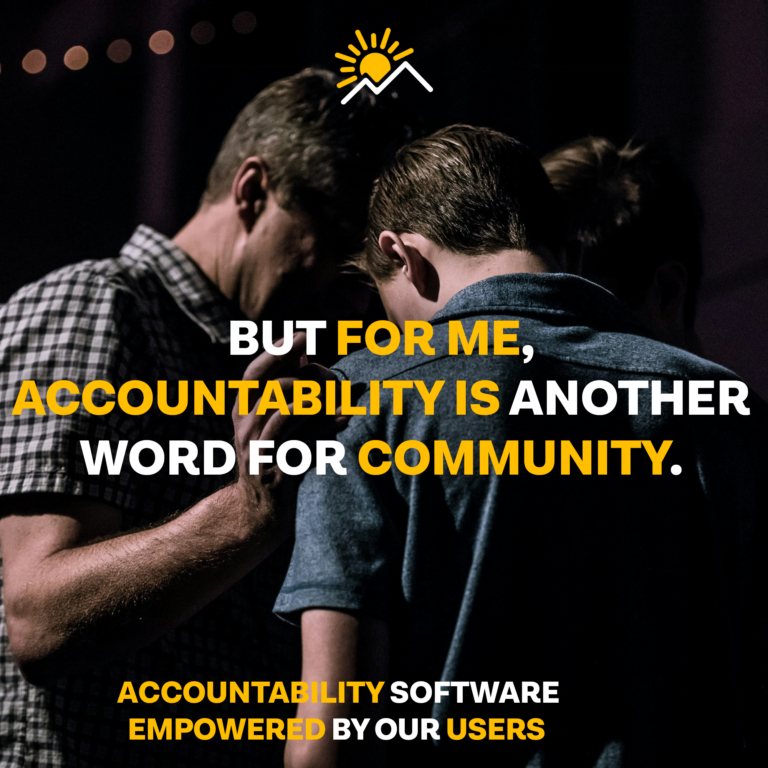
“I have been held by people around me who are willing to hold me accountable, who are willing to pick me back up and say, “Keep traveling. You’ll get there. The addiction doesn’t define you. There’s gonna be a better day ahead.” – Brad’s story
“Ironically, one of the things that helped me the most was learning to be kind and gracious towards myself in the midst of my struggle.
This was really hard, especially at first!
I didn’t feel like I deserved kindness or grace.” – Ken’s story
If someone you love struggles with porn and depression
- Be a safe person to talk with about mental health and porn. Here’s one guide with talking tips from the American Foundation for Suicide Prevention.
- Educate yourself on how to be helpful and supportive during a porn relapse as well as the porn withdrawal process.
- Focus on your person’s goals and potential. Everyone needs someone to lean on.
- Practice self-care and create a safe space for yourself, too. This is especially important if you are a supporting spouse. Your feelings of betrayal and sadness are valid, too.
Conclusion
While the lack of larger scale studies on links between porn and depression is concerning, many are joining in the fight to document the public health harms of pornography. Reputable smaller researched studies reveal that porn use and depression can be linked.
We believe our customers’ stories and experiences are valid data, too. Pornography weighs people down. Take a moment to be inspired by Eric’s before and after porn use story.

“My life was misery, living in the dark,
with a lot of self loathing that
just kind of paralyzed me…
NOW
…I’ve not felt this free in years…
Anybody who’s struggling with pornography can catch a new vision for their life, and then make these human connections. I really believe that their authenticity will be restored, and their vision and their purpose will be restored.” – Eric’s story
* Ever Accountable’s blog is not intended to be a substitute for professional advice, diagnosis, or therapy, though we often link to medically reviewed studies.
14-Day Free Trial
Protection From Pornography
Change your habits, change your life: Start our 14-day free trial to help get rid of pornography for good.
Works Cited
YouTube, 8 January 2022, https://fightthenewdrug.org/what-are-incels-and-how-does-porn-fuel-their-beliefs-and-behavior/. Accessed 13 May 2024.
American Foundation for Suicide Prevention. “How to Start and Continue a Convo About Mental Health | AFSP.” Talk Away the Dark, American Foundation for Suicide Prevention, https://talkawaythedark.afsp.org/startaconversation/. Accessed 8 May 2024.
Brant, Andrea. “Understanding The Possible Connections Between Pornography and Depression: A Guide.” BetterHelp, 17 April 2024, https://www.betterhelp.com/advice/depression/getting-in-touch-with-your-needs-pornography-and-depression/. Accessed 8 May 2024.
Brito, Janet, and Jennifer Huizen. “Pornography and depression: Is there a link?” Medical News Today, 5 November 2020, https://www.medicalnewstoday.com/articles/pornography-and-depression#summary. Accessed 8 May 2024.
Camilleri, Christina et al. “Compulsive Internet Pornography Use and Mental Health: A Cross-Sectional Study in a Sample of University Students in the United States.”
Frontiers in psychology vol. 11 613244. 12 Jan. 2021, doi:10.3389/fpsyg.2020.613244
Dragicevic, Nina. “How loneliness and isolation has spurred incels to cause harm in the real world.” CBC, 4 December 2023, https://www.cbc.ca/documentaries/the-passionate-eye/how-loneliness-and-isolation-has-spurred-incels-to-cause-harm-in-the-real-world-1.7048226. Accessed 13 May 2024.
Drescher, Anna. “Insecure vs. Secure Attachment in Relationships.” Simply Psychology, 23 January 2024, https://www.simplypsychology.org/insecure-vs-secure-attachment-in-relationships.html. Accessed 13 May 2024.
Kushner, David. “A Brief History of Porn on the Internet.” Wired.com, 8 January 2022, https://www.wired.com/story/brief-history-porn-internet/. Accessed 15 May 2024.
Lamb, Anna. “New paper explores the rise of ‘incels.’” Harvard Gazette, 18 October 2023, https://news.harvard.edu/gazette/story/2023/10/new-paper-explores-the-rise-of-incels/. Accessed 13 May 2024.
“Major Depression – National Institute of Mental Health (NIMH).” National Institute of Mental Health, https://www.nimh.nih.gov/health/statistics/major-depression. Accessed 13 May 2024.
McDow, Candis. “The Link Between Pornography and Depression.” Verywell Mind, 7 January 2024, https://www.verywellmind.com/pornography-and-depression-what-s-the-connection-5193845. Accessed 8 May 2024.
Noel, Jonathan K. “Pornography: A Concealed Behavior with Serious Consequences.” PubMed, 3 April 2023, https://pubmed.ncbi.nlm.nih.gov/36989095/. Accessed 9 May 2024.
Perry, Samuel L. “Pornography Use and Depressive Symptoms: Examining the Role of Moral Incongruence.” Society and Mental Health, vol. 8, no. 3, 2017, pp. 175-194. Sage Journals, https://journals.sagepub.com/doi/abs/10.1177/2156869317728373.
“PORNOGRAPHY IN THE INCELOSPHERE.” Culture Reframed, https://culturereframed.org/wp-content/uploads/2023/11/culture-reframed_incel-whitepaper_1123.pdf. Accessed 13 May 2024.
Privara, Michal, and Petr Bob. “Pornography Consumption and Cognitive-Affective Distress.”
The Journal of nervous and mental disease vol. 211,8 (2023): 641-646. doi:10.1097/NMD.0000000000001669
Travers, Mark. “A Psychologist Breaks Down The Storm That Creates ‘Incel’ Men – And Offers A Solution.” Forbes.com, 10 April 2023, https://www.forbes.com/sites/traversmark/2023/04/10/a-psychologist-breaks-down-the-storm-that-creates-incel-men–and-offers-a-solution/?sh=6cd5432424ea. Accessed 13 May 2024.
“2021 National Survey on Drug Use and Health (NSDUH) Releases.” SAMHSA, https://www.samhsa.gov/data/release/2021-national-survey-drug-use-and-health-nsduh-releases. Accessed 13 May 2024.



